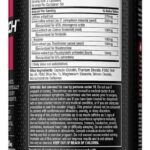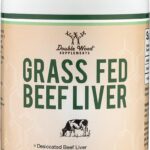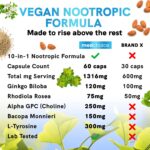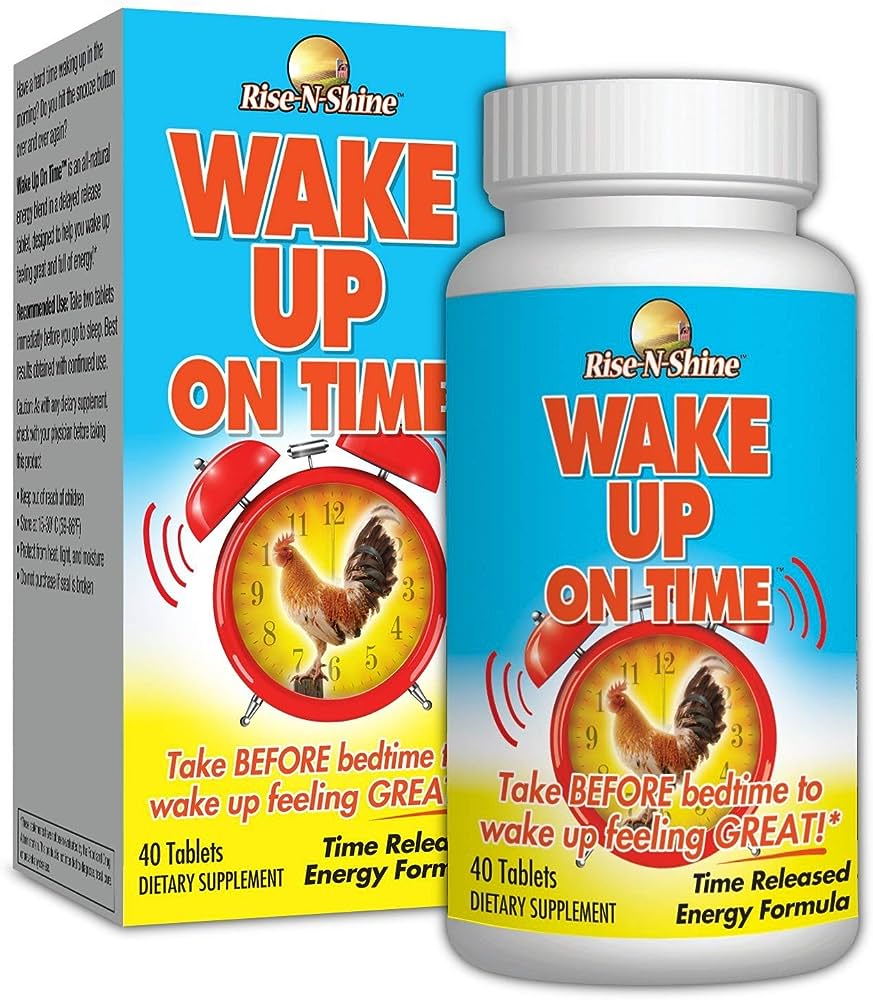Have you ever wondered what exactly makes a vitamin fat-soluble or water-soluble? It’s an interesting topic, and understanding this difference can help you make informed choices about your diet and supplementation. In this article, we will delve into the details of fat-soluble and water-soluble vitamins, exploring how they differ in their properties and functions within the body. So, if you’re curious to learn more about these two types of vitamins and how they impact your health, keep reading!
Firstly, let’s tackle fat-soluble vitamins. These include vitamins A, D, E, and K, and as their name suggests, they dissolve in fat. This means that they are better absorbed and stored in the body when consumed with dietary fats. Fat-soluble vitamins are generally found in foods that contain fat, such as dairy products, fatty fish, and nuts. These vitamins play crucial roles in various bodily processes, including vision, bone health, immune function, and blood clotting. However, because they are stored in the body’s fat tissue, excess intake of fat-soluble vitamins can lead to toxicity over time.
In contrast, water-soluble vitamins are not stored in the body and are excreted through urine. Vitamin C and the eight B vitamins fall into this category. Water-soluble vitamins are found in a wide range of fruits, vegetables, and whole grains. Unlike fat-soluble vitamins, water-soluble vitamins dissolve in water and are easily absorbed by the body. They play important roles in energy production, brain function, immune health, and the synthesis of red blood cells. Since these vitamins are not stored, it is essential to consume them regularly through a balanced diet.
In conclusion, understanding the difference between fat-soluble and water-soluble vitamins is key to maintaining a healthy diet. While fat-soluble vitamins are stored in the body and require dietary fats for absorption, water-soluble vitamins are not stored and need to be replenished regularly. Both types of vitamins have important functions in the body, so it is crucial to include a variety of foods from different food groups to ensure adequate intake. In our upcoming article, we will dive deeper into the specific roles and sources of these vitamins, so stay tuned for more insightful information!
Introduction
When it comes to maintaining a healthy diet, vitamins play a crucial role in ensuring the proper functioning of our bodies. However, not all vitamins are the same. They can be categorized into two main types: fat-soluble and water-soluble vitamins. Understanding the difference between these two types is essential to ensure that we meet our nutritional needs. In this article, we will explore the definition, characteristics, sources, and importance of both fat-soluble and water-soluble vitamins, highlighting the unique aspects of each.
Definition of Fat-soluble Vitamins
Explanation of fat-soluble vitamins
Fat-soluble vitamins, as the name suggests, are vitamins that are soluble in fats and oils. They are characterized by their ability to dissolve in and be stored in the body’s fat tissues. This means that these vitamins can be stored in the liver and fatty tissues for longer periods, unlike water-soluble vitamins, which are more easily excreted by the body. The fat-soluble vitamins include vitamins A, D, E, and K.
Examples of fat-soluble vitamins
Vitamin A, also known as retinol, plays a crucial role in maintaining healthy vision, a strong immune system, and the growth and development of cells and tissues. It can be found in foods such as liver, fish, dairy products, and orange-colored fruits and vegetables like carrots and sweet potatoes.
Vitamin D, often referred to as the “sunshine vitamin,” is essential for regulating calcium and phosphorus levels in the body, which are vital for bone health. It is primarily synthesized in the body when the skin is exposed to sunlight, but it can also be obtained from dietary sources such as fatty fish, fortified milk, and egg yolks.
Vitamin E acts as an antioxidant, protecting cells from damage caused by free radicals. It is also involved in immune function and blood clotting. Good sources of vitamin E include nuts, seeds, vegetable oils, and leafy green vegetables.
Vitamin K is necessary for blood clotting, bone health, and the regulation of calcium levels in the body. It can be found in green leafy vegetables such as kale, spinach, and broccoli, as well as in certain oils, such as soybean and canola oil.
Characteristics of Fat-soluble Vitamins
Absorption and storage in the body
One of the key characteristics of fat-soluble vitamins is their ability to be stored in the body. Unlike water-soluble vitamins, which are quickly excreted, fat-soluble vitamins can be stored in the liver and fatty tissues. This means that they can be stored for longer periods and do not need to be consumed on a daily basis.
Role in the body
Fat-soluble vitamins have a variety of essential roles in the body. Vitamin A is necessary for vision, immune function, and cell growth. Vitamin D plays a crucial role in maintaining healthy bones and teeth, as well as supporting immune system function. Vitamin E acts as an antioxidant, protecting cells from damage. Vitamin K is important for blood clotting and bone health.
Deficiency symptoms and toxicity risks
While fat-soluble vitamins are important for our health, both deficiency and excess intake can have adverse effects. A deficiency in any of the fat-soluble vitamins can lead to various health problems. For example, a deficiency in vitamin A may result in night blindness, weakened immune system, and skin problems. Insufficient vitamin D intake can lead to weak bones, increased risk of fractures, and osteoporosis.
On the other hand, excessive intake of fat-soluble vitamins can be toxic. Vitamin A toxicity, for instance, can cause nausea, hair loss, and even liver damage. Overconsumption of vitamin D can lead to a condition known as hypervitaminosis D, characterized by high levels of blood calcium, which can result in kidney stones and other health complications. It is important to maintain a balanced intake of fat-soluble vitamins to avoid both deficiency and toxicity.
Sources of Fat-soluble Vitamins
Foods rich in fat-soluble vitamins
To ensure an adequate intake of fat-soluble vitamins, it is important to include foods that are rich in these vitamins in our diets. Good sources of vitamin A include liver, fish, dairy products, and orange-colored fruits and vegetables. Vitamin D can be obtained from fatty fish like salmon and mackerel, fortified milk and dairy products, and egg yolks. Vitamin E can be found in nuts, seeds, vegetable oils, and leafy green vegetables. Lastly, vitamin K is abundant in green leafy vegetables, as well as in certain oils.
Supplements and fortified products
In some cases, obtaining sufficient fat-soluble vitamins from diet alone may be challenging. In such situations, dietary supplements and fortified products can be considered. However, it is important to consult with a healthcare professional before starting any supplementation to ensure appropriate dosage and avoid risks of toxicity.
Definition of Water-soluble Vitamins
Explanation of water-soluble vitamins
Water-soluble vitamins, as the name implies, are vitamins that are soluble in water. Unlike fat-soluble vitamins, water-soluble vitamins cannot be stored in the body for long periods and are excreted through urine. The water-soluble vitamins include vitamin C and the B vitamins, including thiamine (B1), riboflavin (B2), niacin (B3), pantothenic acid (B5), pyridoxine (B6), biotin (B7), folate (B9), and cobalamin (B12).
Examples of water-soluble vitamins
Vitamin C, also known as ascorbic acid, is essential for collagen production, wound healing, and maintaining a healthy immune system. It can be found in citrus fruits, berries, kiwi, tomatoes, and green leafy vegetables.
The B vitamins play various roles in the body, including energy production, red blood cell formation, and nervous system function. Foods rich in B vitamins include whole grains, legumes, leafy green vegetables, meat, eggs, and dairy products.
Characteristics of Water-soluble Vitamins
Absorption and excretion in the body
Unlike fat-soluble vitamins, water-soluble vitamins are not stored in the body for long periods. After being absorbed by the body, they are quickly circulated in the bloodstream, and any excess amounts are excreted through urine. This means that these vitamins need to be consumed regularly to maintain optimal levels.
Role in the body
Water-soluble vitamins play various important roles in the body. Vitamin C is an antioxidant and is involved in collagen production, immune function, and iron absorption. The B vitamins are essential for energy metabolism, DNA synthesis, and nervous system function.
Deficiency symptoms and toxicity risks
A deficiency in water-soluble vitamins can lead to various health problems. For example, vitamin C deficiency can result in scurvy, characterized by weakness, fatigue, and bleeding gums. Deficiencies in B vitamins can cause different conditions: thiamine deficiency can lead to beriberi, characterized by nerve, heart, and muscle abnormalities, while a deficiency in vitamin B12 can result in anemia and neurological problems.
Unlike fat-soluble vitamins, water-soluble vitamins have a lower risk of toxicity, as excess amounts are excreted through urine. However, megadoses of certain water-soluble vitamins, such as niacin or vitamin B6, can still lead to adverse effects. It is important to meet the recommended daily intakes for water-soluble vitamins and avoid excessive supplementation.
Sources of Water-soluble Vitamins
Foods rich in water-soluble vitamins
To obtain sufficient amounts of water-soluble vitamins, it is important to include foods rich in these vitamins in our diets. Vitamin C can be found in citrus fruits, berries, kiwi, tomatoes, and green leafy vegetables. B vitamins are abundant in whole grains, legumes, leafy green vegetables, meat, eggs, and dairy products.
Supplements and fortified products
In some cases, people may struggle to meet their daily requirements of water-soluble vitamins through diet alone. In these situations, dietary supplements or fortified products can be considered. However, it is always recommended to consult with a healthcare professional before starting any supplementation to ensure appropriate dosage.
Comparison between Fat-soluble and Water-soluble Vitamins
Absorption and storage differences
One of the main differences between fat-soluble and water-soluble vitamins is their absorption and storage in the body. Fat-soluble vitamins can be stored in the body’s fat tissues, while water-soluble vitamins are quickly excreted.
Functions and roles in the body
Fat-soluble vitamins have specific functions and roles in the body, such as maintaining vision, supporting immune system function, acting as antioxidants, and contributing to blood clotting and bone health. Water-soluble vitamins are involved in energy metabolism, DNA synthesis, collagen production, iron absorption, and nervous system function.
Deficiency and toxicity risks
Both deficiencies and excessive intakes of fat-soluble vitamins can lead to adverse effects. Fat-soluble vitamin deficiencies can result in vision problems, weakened immune system, bone disorders, and blood clotting issues. Excessive intake of fat-soluble vitamins can be toxic and cause nausea, hair loss, liver damage, and kidney problems.
Water-soluble vitamin deficiencies can lead to conditions such as scurvy, beriberi, anemia, and neurological problems. Excessive intakes of water-soluble vitamins have a lower risk of toxicity but can still cause adverse effects, particularly with megadoses of certain vitamins.
Recommended intakes
The recommended intakes of fat-soluble and water-soluble vitamins vary based on age, sex, life stage, and health conditions. It is essential to follow the dietary guidelines provided by reputable health organizations and consult with healthcare professionals to determine the appropriate intake of vitamins.
Importance of a Balanced Vitamin Intake
Understanding the need for both types
Maintaining a balanced intake of both fat-soluble and water-soluble vitamins is crucial for overall health and well-being. Each type of vitamin plays a unique role in the body, and deficiencies or excessive intakes can lead to health complications. Therefore, it is important to consume a wide variety of foods rich in both types of vitamins to ensure a balanced intake.
Health benefits of a balanced intake
A balanced intake of vitamins is associated with various health benefits. Fat-soluble vitamins contribute to eye health, immune function, antioxidant protection, and bone health. Water-soluble vitamins are involved in energy production, collagen synthesis, immune system support, and nervous system function. By meeting the recommended intakes of both types of vitamins, we can support our overall health and reduce the risk of dietary deficiencies.
Conclusion
In conclusion, fat-soluble and water-soluble vitamins differ in their solubility, absorption, storage, and excretion in the body. Fat-soluble vitamins, including vitamins A, D, E, and K, can be stored in the body’s fat tissues and have specific functions in vision, bone health, immunity, and antioxidant protection. Water-soluble vitamins, such as vitamin C and B vitamins, are quickly excreted and play important roles in energy metabolism, collagen synthesis, immune support, and nervous system function.
To maintain a balanced intake of vitamins, it is important to include a variety of foods rich in both fat-soluble and water-soluble vitamins in our diets. Additionally, supplements and fortified products can be considered when dietary intake is insufficient, but it is always recommended to consult with healthcare professionals to ensure appropriate dosage.
By understanding the difference between fat-soluble and water-soluble vitamins and meeting the recommended intakes for both, we can support our overall health and well-being. So, make sure to include a colorful array of fruits, vegetables, whole grains, lean proteins, dairy products, and healthy fats in your diet to fulfill your vitamin needs!











